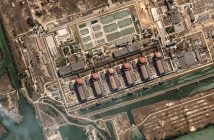- The South African National Energy Development Institute (SANEDI) supports several measures encompassed in the Green New Deal initiative, which could revitalise the economy post-COVID-19.
- While lockdown inadvertently helped to reduce carbon dioxide emissions, it is critically important that the sustainability of the environment is at the heart of post-COVID-19 recovery efforts, according to SANEDI.
“This is where the much-talked-about Green New Deal (GND) becomes crucial and while it’s no panacea to economic challenges, harnessing its benefits can help grow the economy and create jobs in a post-COVID-19 world,” says Barry Bredenkamp, General Manager Energy Efficiency and Corporate Communications at SANEDI.
The GND is a major globally-led government programme aimed at shaping socially and economically just, green and renewable energy-powered economies, with societies supporting human rights, while addressing poverty and inequality.
There have been forecasts by unions, like the Congress of South African Trade Unions, for example, supportive of the idea that it could make a difference, creating at least 300,000 jobs – yet this has not happened. But post the pandemic, it provides an ideal platform to help stimulate the economy.
SANEDI is not alone in proposing such steps. The institute is endorsing a call by what is being hailed as the largest ever UN-backed CEO-led climate advocacy effort in which 155 multinationals have reaffirmed a science-based commitment to achieving a zero-carbon economy and urging governments to match their ambition to “prioritise a faster and fairer transition from a grey to a green economy”.
Green New Deal initiative
As South Africa eases towards a return to business, recovery must be premised on ensuring that the environment is key to a sustainable future. “Rebuilding initiatives premised on ensuring that the environment is key to a better future, can assist in addressing the effects of COVID-19, along with tackling poverty and job creation through a number of initiatives,” says Bredenkamp.
To this end, SANEDI supports several measures which could revitalise the post-COVID-19 Green New Deal initiative, these include:
- Putting climate change projects at the heart of recovery efforts
- Facilitating funding of green projects, supporting poverty alleviation and job creation
- Focusing on sustainable energy innovation for impact in urban and rural South Africa
- Advocating for green energy solutions that lessen reliance on finite fossil fuels, for example, and,
- Scaling up successful small endeavours, which, along with the above proposals, in turn, can help grow the economy and create jobs.
The platform, he says, is already available as South Africa is no stranger to the principles of a GND with elements of it featuring in the National Growth Plan, while the Green Fund established in 2012 through the Department of Environmental Affairs with an initial R800 million seed fund, is managed by the Development Bank of Southern Africa.
The call to bring about equal distribution of income and reverse decades of environmental degradation is not unique to South Africa. In 2019, the United Nations Conference on Trade and Development published its trade and development report calling for decarbonising the global economy, arguing that it would require a significant rise in public investment, especially in clean transport, energy and food systems.
Transition towards the 2030 vision
According to SANEDI, integration of actions are key to achieving the Sustainable Development Goals on climate change, in particular meeting the targets of the National Development Plan (NDP), whose vision is by 2030 for the country to become fully engaged in the transition towards an environmentally sustainable, climate-change resilient, low-carbon economy and a just society.
SANEDI states that the reduction of GHG emissions can be achieved by reducing our overall reliance on coal-based energy generation, to increasing and accelerating the uptake of energy efficiency and renewable sources – a transition that could potentially create 300,000 green jobs, through infrastructure development and enabling new opportunities, especially for the poor.
“It is clear, South Africa can benefit in a post-COVID-19 scenario, by harnessing the positives of a Green New Deal and making it work towards shaping a stronger economy and creating jobs,” concludes Bredenkamp
Author: Babalwa Bungane
Babalwa Bungane is a content creator/editor for ESI Africa – Clarion Events Africa. Babalwa has been writing for the publication for five years. She has a great interest in social media due to its advantage of disseminating content.
This article was originally published on ESI Africa and is republished with permission with minor editorial changes.











